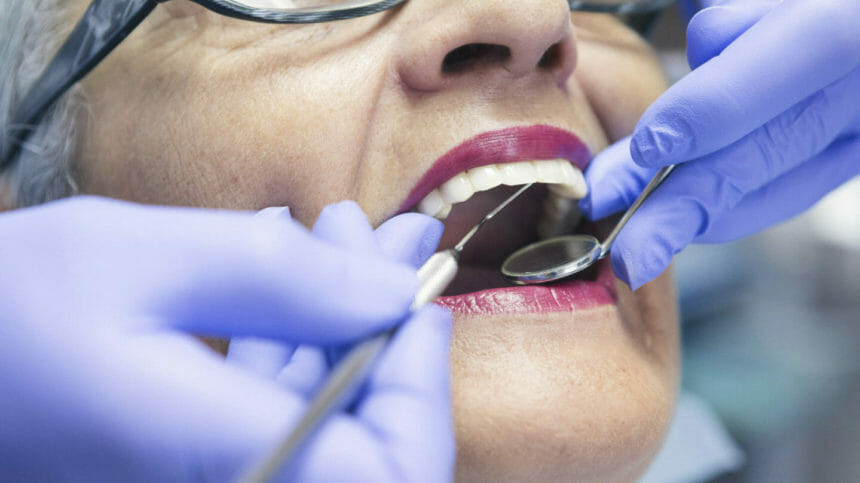
A genetic propensity toward poor oral health is associated with signs of poorer brain function, a preliminary study has found.
Investigators studied this link among nearly 40,000 adults enrolled in the U.K. Biobank. Participants had no history of stroke. Between 2014 and 2021, participants were screened for 105 genetic variants that predispose people to having cavities, dentures and missing teeth later in life. Signs of brain health were determined using magnetic resonance imaging.
When compared to similar-age peers with normal brain scans, people who were genetically prone to poor oral health were also more likely to have silent cerebrovascular disease. They also had a 43% higher brain microstructural damage scores, the researchers found.
Prior studies have found that gum disease, missing teeth, poor brushing habits and lack of plaque removal, among other poor oral health factors, increase stroke risk. Although the study is preliminary, the takeaway is that “we need to be extra careful with our oral hygiene because it has implications far beyond the mouth,” according to study author Cyprien Rivier, MD, MS, of the Yale School of Medicine in Connecticut.
The research is scheduled to be presented at the American Stroke Association’s International Stroke Conference 2023.
Related articles:
Unbrushed teeth may be a leading cause of pneumonia in bedridden patients
Tooth survival after root canal varies widely across U.S. regions




